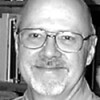Michigan State University on Thursday became the third public institution of higher education this week to decline to host an event at which the white nationalist Richard Spencer presumably would have spoken, and the president of a fourth institution, Louisiana State University, said Mr. Spencer would not be welcome there.
Like the other colleges that have said no to events involving Mr. Spencer or the National Policy Institute, the white-nationalist group he leads, Michigan State cited the increased security risks in light of the violence that erupted this past weekend when white nationalists and other groups rallied in Charlottesville, Va. One woman was killed when a car rammed into a crowd of counterprotesters there, and many other people were injured in that incident and other clashes.
Michigan State, the University of Florida, and Texas A&M University each asserted that it remained committed to protecting freedom of expression, but said the violence in Virginia had changed the equation for balancing that constitutional right against public-safety concerns.
In a statement released on Thursday afternoon, Michigan State administrators said that the university had denied a request from the National Policy Institute to rent space on its campus for a speaker sometime in September. According to a report in the Lansing State Journal, the statement did not say who the speaker might be, but said the university’s decision had been made “due to significant concerns about public safety in the wake of the tragic violence in Charlottesville last weekend.”
It added: “While we remain firm in our commitment to freedom of expression, our first obligation is to the safety and security of our students and our community.”
The University of Florida also cited safety concerns raised by the “violent clashes in Charlottesville” when it denied the National Policy Institute’s request to rent space for an event on its campus. In a statement released on Wednesday, W. Kent Fuchs, the institution’s president, said the university’s risk assessments had also taken into account messages on social media calling for similar violence in Gainesville, including statements like “the next battlefield is in Florida.”
Texas A&M University used language similar to Florida’s in announcing its decision on Monday to cancel an outside organizer’s plans to hold a “White Lives Matter” event featuring Mr. Spencer on its College Station campus. The organizer, a former student named Preston Wiginton, had used the phrase “Today Charlottesville, Tomorrow Texas A&M” in promoting his planned event to the media.
Texas A&M said that by linking his event with the violent rallies in Charlottesville, Mr. Wiginton had created “a major security risk.”
Mr. Spencer has vowed to challenge at least one of the university actions against him this week. “Such a brazen attack on free speech from a public university is infuriating,” he said in a text message to the Associated Press after the University of Florida denied his group’s request to rent space there.
Such a challenge might succeed. A federal judge ordered Auburn University to allow Mr. Spencer to speak after the university tried to cancel an April 18 event on its campus. The judge said Auburn had failed to provide sufficient evidence that Mr. Spencer’s speech was likely to incite violence.
Louisiana State University has not declined a specific request for an appearance by Mr. Spencer on its Baton Rouge campus, but its president, F. King Alexander, told The Advocate that people had been calling the university trying to arrange such a visit. Mr. Alexander warned them off in advance: Mr. Spencer “is not welcome,” he said.










